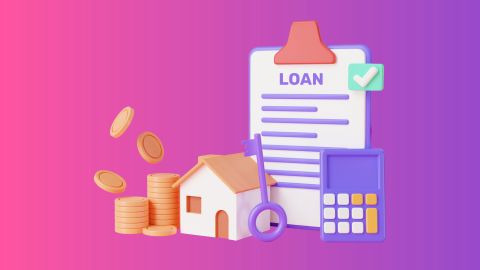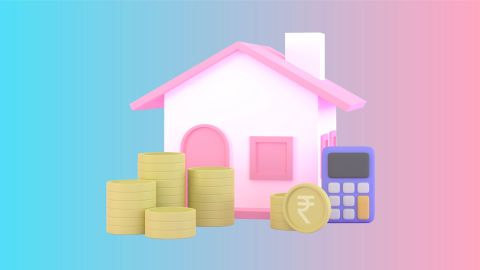The conveyance deed stands as a cornerstone in the realm of property transactions within the Delhi Development Authority (DDA). Serving as a legal instrument, it facilitates the transfer of ownership rights from the developer to the buyer, ensuring clarity and transparency in property ownership. Understanding the nuances of the conveyance deed is paramount for individuals navigating the intricacies of DDA property transactions, as it signifies the completion of the transfer process and safeguards against potential disputes in the future.
When securing a home loan, understanding the conveyance deed is crucial. This legal document facilitates the transfer of property ownership and acts as a vital requirement for home loan approval. Ensuring the conveyance deed is accurately drafted and legally sound safeguards both the buyer and the lender, providing transparent evidence of ownership and financial commitment.
Overview of the DDA (Delhi Development Authority)
The Delhi Development Authority (DDA) stands as a pivotal institution in the urban landscape of India's capital city, overseeing the planned development and regulation of Delhi's infrastructure and land use. Established in 1957, DDA has been instrumental in shaping the city's growth, managing land acquisition, and facilitating housing projects to meet the demands of its burgeoning population.
Introduction to conveyance deeds (DDA)
Conveyance deeds, abbreviated as DDAs, are pivotal legal documents in real estate transactions. They facilitate the transfer of property ownership from seller to buyer, ensuring transparency and legality. DDAs serve as crucial prerequisites for various transactions, including securing loans against property. These documents outline the terms and conditions of the property transfer, including rights, responsibilities, and obligations of both parties involved. Properly executed conveyance deeds provide assurance to both the buyer and the lender, validating the ownership rights and financial commitments associated with the property. Understanding the intricacies of conveyance deeds is essential for navigating real estate transactions effectively.
Understanding conveyance deeds in DDA transfers
In the context of the Delhi Development Authority (DDA) transfers, conveyance deeds play a crucial role in the legal transfer of property ownership. Here's how:
- Legal document: A conveyance deed is a legal document that transfers the ownership of a property from one party to another. In the case of DDA transfers, it facilitates the transfer of ownership of land or property from the DDA to an individual or entity.
- Proof of ownership: The conveyance deed serves as proof of ownership of the property. Once the deed is executed and registered, it establishes the legal title of the property in the name of the transferee (the buyer or the entity to whom the property is being transferred).
- Registration requirement: In India, conveyance deeds need to be registered with the relevant authority, usually the Sub-Registrar of Assurances. Registration provides additional legal validity to the transfer and ensures that the transaction is legally enforceable.
- Details of transfer: The conveyance deed typically contains details such as the names and addresses of the transferor (DDA) and the transferee, description of the property being transferred, consideration amount (if any), and other terms and conditions of the transfer.
- Protection of rights: By executing a conveyance deed, both the transferor and the transferee protect their respective rights. The deed outlines the obligations and responsibilities of both parties, thereby reducing the likelihood of disputes arising in the future regarding the ownership or use of the property.
Key components of a conveyance deed for DDA properties
In the context of Delhi Development Authority (DDA) properties, a conveyance deed serves as a legal instrument for transferring ownership from the DDA to an individual or entity. The key components of a conveyance deed for DDA properties typically include:
- Details of parties involved:
Names, addresses, and other identifying information of the transferor (DDA) and the transferee (buyer or entity acquiring the property). - Description of the property:
Precise details describing the property being transferred, including its location, boundaries, dimensions, and any other relevant characteristics. - Consideration amount:
The agreed-upon monetary consideration for the transfer of the property. In some cases, DDA properties may be transferred without any consideration, especially in cases of allotment or transfer to government bodies or public institutions. - Terms and conditions:
Any specific terms and conditions agreed upon by the parties involved in the transfer. This may include conditions related to the use of the property, maintenance responsibilities, or any other relevant terms. - Rights and obligations:
Rights and obligations of both the transferor and the transferee regarding the property. This may include clauses related to property taxes, maintenance fees, and other responsibilities. - Indemnity clause:
A clause outlining the indemnity provided by the transferor to the transferee against any claims, disputes, or encumbrances related to the property prior to the transfer. - Execution and registration details:
Details regarding the execution of the deed, including the date of execution, signatures of the parties involved, and witnesses (if required). Additionally, information about the registration of the conveyance deed with the relevant authority, such as the Sub-Registrar of Assurances, including the date and registration number. - Conveyance clause:
A clear and unambiguous statement conveying the title of the property from the DDA to the transferee, indicating the intention to transfer ownership rights. - Certification and seals:
Certification by a legal authority confirming the validity of the conveyance deed, along with any official seals or stamps required for legal authentication. - Miscellaneous provisions:
Any other provisions deemed necessary or relevant to the transfer of ownership of the DDA property, ensuring comprehensive coverage of all aspects of the transfer process.
These components collectively form the conveyance deed for DDA properties, providing a legally binding document that facilitates the transfer of ownership rights from the DDA to the transferee.
Process of executing a conveyance deed with DDA
Executing a conveyance deed with the Delhi Development Authority (DDA) typically involves several steps. Here's a general outline of the process:
- Application submission: You'll need to submit an application to the DDA expressing your intent to execute a conveyance deed. This application usually includes details such as the property address, your ownership details, and any other relevant information required by the DDA.
- Verification and approval: The DDA will verify the details provided in your application and conduct any necessary checks to ensure that you are eligible to execute the conveyance deed. This might involve verifying the title of the property and ensuring that all dues and taxes related to the property are cleared.
- Payment of fees: You may need to pay certain fees and charges associated with executing the conveyance deed. These fees could include stamp duty, registration charges, and any other administrative fees required by the DDA.
- Drafting of deed: Once your application is approved and all fees are paid, the DDA or your legal representative will draft the conveyance deed. This document will outline the details of the property transfer, including the names of the parties involved, the property description, any terms and conditions, and other relevant information.
- Signing of deed: Both parties involved in the property transfer - the seller (grantor) and the buyer (grantee) - will need to sign the conveyance deed in the presence of witnesses.
- Registration: After the deed is signed, it needs to be registered with the appropriate authority. In the case of DDA properties, this typically involves registration with the Sub-Registrar of Assurances in Delhi. You'll need to submit the original deed along with any required documents and pay the applicable registration fees.
- Issuance of conveyance deed: Once the deed is registered, the DDA will issue the conveyance deed in your favour. This document serves as legal proof of ownership of the property and should be kept in a safe place for future reference.
- Post-registration formalities: After the conveyance deed is issued, you may need to complete certain post-registration formalities, such as updating property records with the relevant authorities and notifying any relevant parties about the change in ownership.
It's essential to consult with legal experts or professionals familiar with property transactions in Delhi, as specific requirements and procedures may vary based on the nature of the property and other factors.
The importance of conveyance deeds in DDA property ownership
The importance of the conveyance deed in DDA property ownership cannot be overstated. It serves as a conclusive proof of ownership, providing legal protection against any potential disputes or claims on the property. Additionally, it facilitates access to various amenities, utilities, and services associated with the property, ensuring a hassle-free ownership experience for the buyer.
Explore Bajaj Housing Finance Home Loan
In the realm of property transactions within the Delhi Development Authority (DDA), home loans are indispensable financial tools, enabling individuals to fulfil their homeownership aspirations while navigating the intricacies of conveyance deeds. Bajaj Housing Finance Home Loan provides beneficial home loans tailored to meet the diverse needs of its customers, offering competitive interest rates, flexible repayment options, and swift approval processes. Here are a few benefits of applying for a home loan from Bajaj Housing Finance:
- Personalised loan solutions: Tailor your home loan to meet your unique requirements with our flexible options. Customise your loan amount and repayment tenure, giving you the freedom to achieve homeownership on your own terms.
- Competitive interest rates: Begin your homeownership journey with home loans featuring competitive interest rates starting at 7.15%* p.a, ensuring affordability and ease of management.
- Access additional funding: Unlock extra finances with our top-up loan facility, allowing you to secure Rs. 1 crore* or higher, through a home loan balance transfer. Benefit from minimal documentation and attractive interest rates, utilising the surplus for home renovations, repairs, or expansions.
- Flexible repayment options: Enjoy the flexibility of extended repayment tenures of up to 32 years, empowering you to select a repayment plan that suits your financial circumstances. Prioritise your loan repayment effectively with convenient options tailored to your needs.
Achieve your dream of homeownership with confidence and ease by choosing Bajaj Housing Finance Home Loan.




